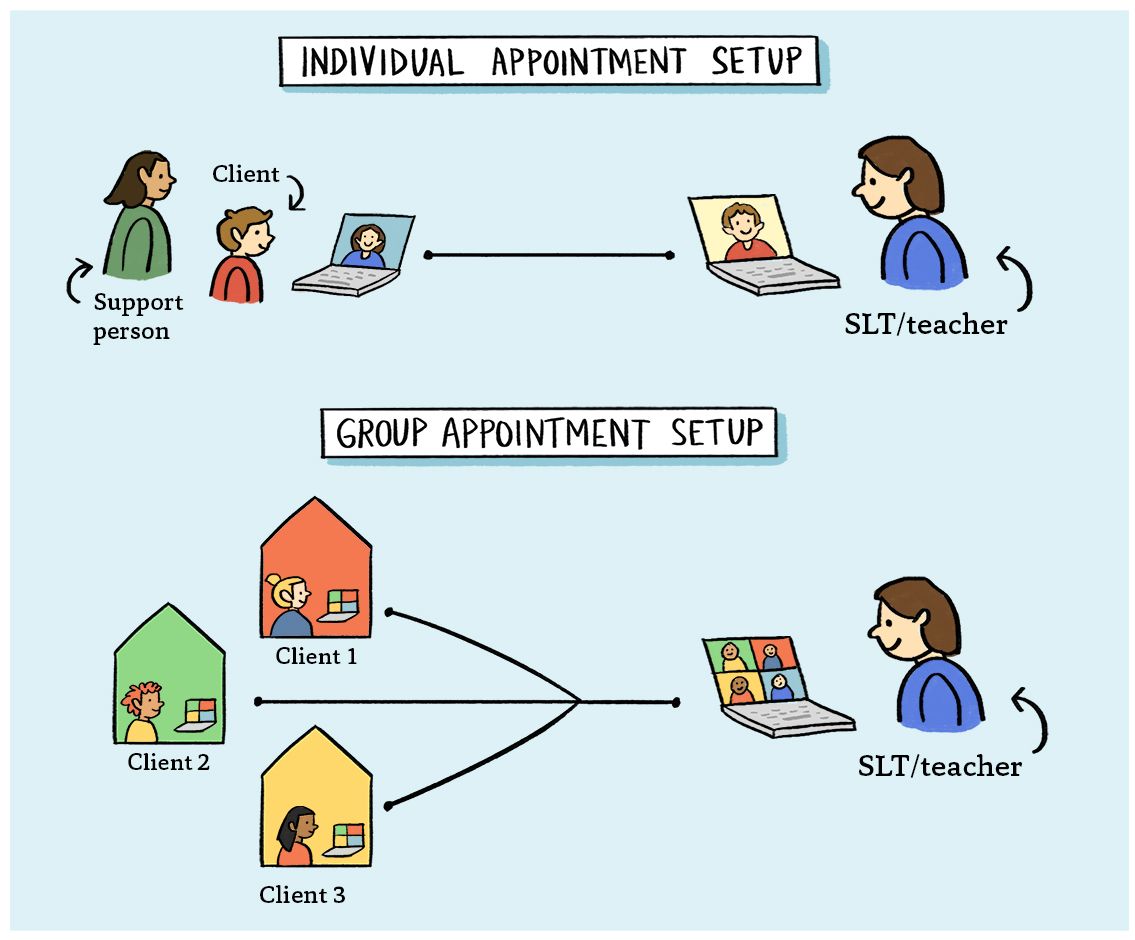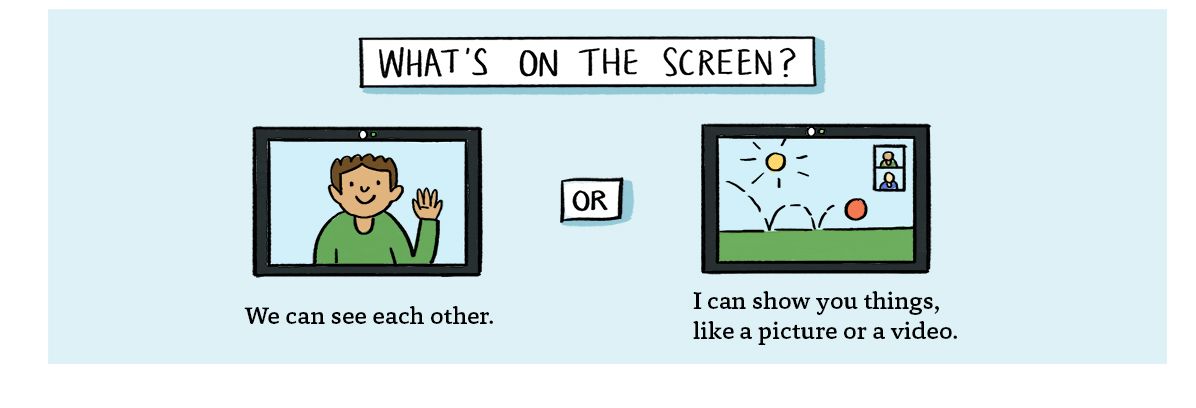How to access our services
If you are interested in our services, please sign up using our online inquiry form which is how we manage all expressions of interest in our clinical services.
Requesting an initial session
Inquiry form The first step is to add your name to our list of interested people (which also acts as a waitlist), please can do that here online form
Paperwork to complete before your first appointment
Before your first appointment, we will ask you to complete an intake form and consent form
- Consent form
- Child Intake form
- Intake form for older students and young adults with autism (diangnosised or suspected)
We may send a custom form for older clients, clients looking for an AAC assessment and other circumstances Please feel free to contact us to talk about how we can assist you - even if for a short period of time to get you started while you wait for publicly funded services. We also may be able to refer you on to another local therapist.
Our approach to providing intervention and consultation
Communication occurs everywhere and anywhere, and rarely with a speech-therapist!
Given this, we at Inclusive Communication strongly believe in the value of working on communication skills in the settings where they are most frequently used.
Communication success definitely can occur in the therapy room, however we have seen so much success when we met clients in their own space and on their own terms.
What we can help with:
- Developing communication and language skills
- Emergent and early literacy skills
- Getting the most out of your AAC device and assistive technology
- CAT1 assessments (like what TalkLink does) and funding application for assistive technology to support communication
- Becoming more comfortable teaching and interacting with a child with communication difficulties
- Discussing and trouble shooting links between "behaviour" and communication, particularly with older students
- Helping you understand autism
- Supporting adults with intellectual disabilities
- Coaching and training for your support workers, whānau, or school team
We are not currently working with clients who primarily need support around stuttering, voice disorders, or feeding/swallowing.
We also do not do ABA therapy and are happy to explain our rationale and philosophy for why we take a child-led, play-based and nuerodiversity affirming approach.
CAT 1 - assistive technology assessments
We are able to provide privately funded assessments for AAC (Augmentative and Alternative communication. If an appropriate low or high tech solution is found, we can submit CAT-1 level funding applications to Enable (Ministry of Health). The equipment will be publicly funded if you qualify.
Alternatively, you can self-refer to TalkLink for a publicly funded assessment for a publicly funded assessment (waits are 1-2 years currently) and/or talk to your Ministry of Education team. School are allowed to contact MOE's learning support teams to request a CAT assessment for a student as well.
Where we work
We come to you. Our sessions are held at school, in your home, or in the community. If appropriate, sessions can be via telepractice (via skype, zoom or other video conferencing software). We primarily serve the Greater Wellington region including Hutt Valley and Kāpiti.
By special arrangement, we occasionally travel for one-off consultations throughout New Zealand.
In-person sessions
We work where you live, learn, and work. All of our face-to-face sessions are done in the community. We need to see how our clients communicate in their everyday environments. Often this is a mix of school and home sessions.
We also work with adults in their workplaces, homes, or in the community.
Community
As skills and confidence increases, 'real world' sessions may be considered to help with generalisation. Sessions can be scheduled in the environments that are particularly motivating (or challenging) as the case might be. For example, if a person's goals are to better communicate in the community, we can arrange to work on communication in those settings. We have also done therapy in cafes, in community centres, at the shops, during summer camps, and on occasion even at the local beach!
Schools
It is our mission to support the ongoing transformational work happening in inclusive education.
We provide custom professional learning and development programmes to schools focused on supporting the education of students with diverse learning needs both in New Zealand and overseas.
Adults with intellectual disabilities or physical disabilities
We provide support to day programmes, disability providers, and others striving to fully support the communication needs of their family members or clients.
We can provide advice, training, and coaching around how to teach literacy, develop communication skills, and enhance social communication.
Here is an example of this work:
Advocacy
We also are committed to helping improve communication accessibility in all sectors of society and deliver training to employers, disability organisations, and customer-facing services wanting to improve how they engage people with communication disorders.
Contracting
Various government agencies responsible for the welfare, safety, and education of young people contract with Inclusive Communication LTD.
Telepractice
Sometimes what works best is to have some or all sessions remotely. You can call in from where ever you are so long as you have a good internet connection and not too much background noise. We do the same types of therapy activities, however it is easier to share a screen for literacy work, easier to see the therapist's mouth during speech work.
This is also an option if you are feeling well enough for a session, but aren't sure if you are coming down with a virus.

Sometimes it feels like a tutorial session and other times it can be more like a coach watching from the sidelines giving you encouragement and support.

Telepractice is a great way to improve skills, maintain a sense of connection and normalcy, or practice skills you already have!

Supervision and student placements
We provide supervision via zoom and also do the occasional student placement, particularly in the areas of literacy, AAC, and Autism.
Frequency
Most clients are seen 2-4 times a month (dependent on clinician availability), however in some cases families just want a burst of a few sessions and then be able to request a consult as needed. If you want someone to come in, show you the ropes of a new piece of technology or set of communication techniques, and then want to get on with it yourselves, that is great! Others prefer support on a more regular basis. At any stage, you can let us know what you think you need and we can adjust based on your needs and our availability. We tend to wait for you to reach out because we never want to come across as pushy.
Collaboration and Commitment
Working closely with clients and their families is the cornerstone to the type of therapy we offer. Our goal is for clients to effectively communicate with the people they see on a regular basis and during their everyday activities. We also strive to help family and teachers to be confident communicating with them.
The reality is most clients will spend less than 1% of their week with a speech therapist. The vast majority of all communication opportunities are with other people. And that is great, because we have yet to hear of someone stating that their primary goal is to be better at communicating with their speech-language therapist!
We also know that most people learn best from watching. We believe in the power of demonstration. The power of creating communication experiences that ensure that our clients experience success. We believe in stretching a child's capability, but avoid at all costs pushing them too hard. So you will often see me encouraging families, staff and siblings to watch and join into sessions.
We want to provide the tools and support so that our clients are able to tell others what they want, share their thoughts, tell stories, have conversations, engage with the written word with confidence, and connect with people. Long term, we want people to become competent communicators so they can focus on goals like getting a job, making and keeping friendships, dating, and succeeding at school.
The best outcomes are seen when people have ample opportunities to communicate and develop their literacy skills. They need numerous safe places to make mistakes and appropriate support systems in place. They need understanding communication partners who can wait, believe, coach, give the benefit of the doubt, and listen.
Our work extends beyond one-on-one therapy activities. We may need to dedicate time to creating visual supports, updating vocabulary on communication devices, and providing training to families to support someone who is struggling with speech. We may decide that incorporating therapy into daily routines such as meals and household chores is appropriate. At times, we will bring prepared lesson activities and at other times we will look to you for ideas of activities that frequently occur in your family that can be adapted to work on therapy goals.